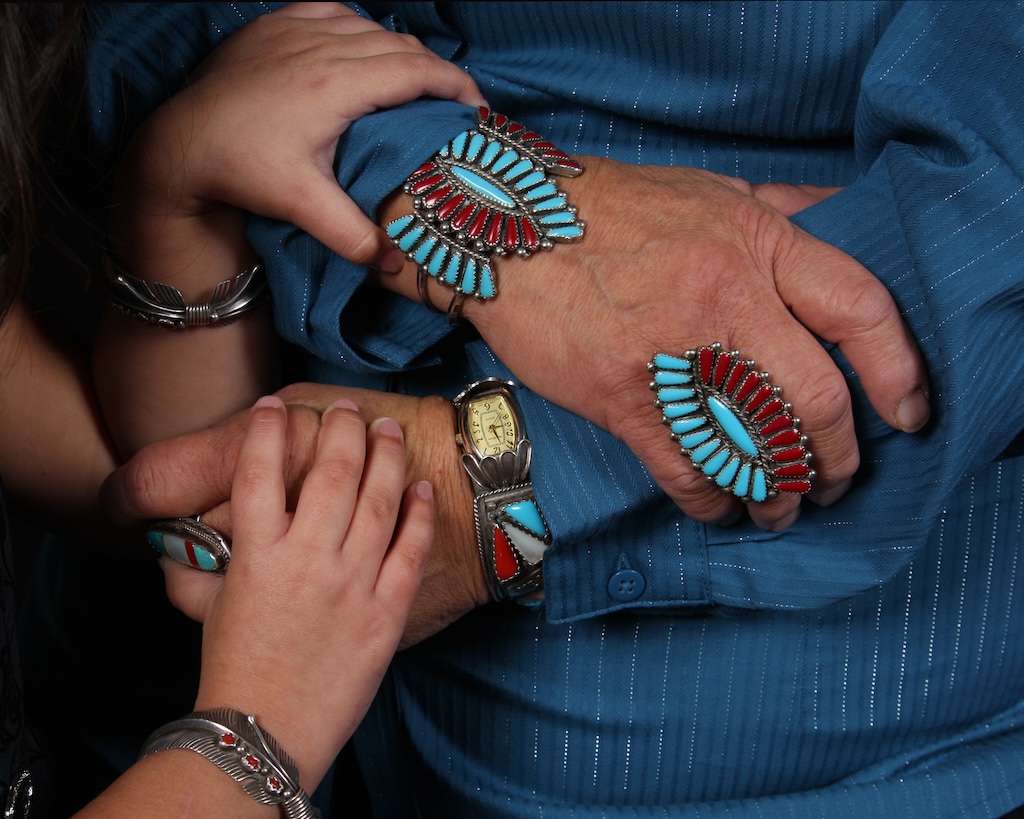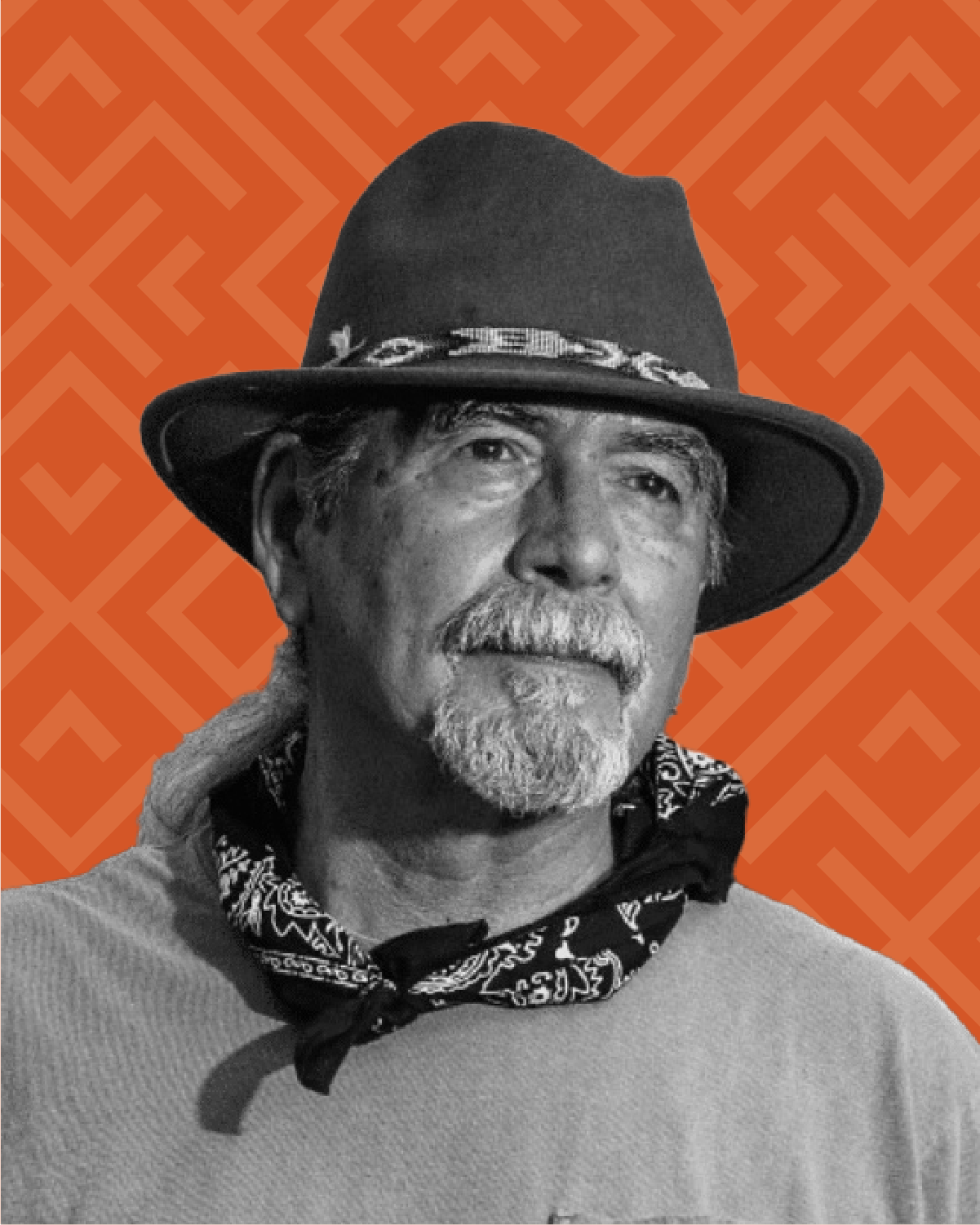


PANEL DISCUSSION
The Spring 2024 “Ethical Tribal Engagement Workshop #2: Meeting Tribal Needs Through Collaboration” panel seeks to bridge Indigenous and institutional perspectives around research and collaborative community engagement. Our esteemed panelists of scholars, researchers and Tribal professionals will speak to the nuances, protocols, concerns, ethics, and best practices of engaging in research or collaborations with and about Indigenous communities or collections.

Kelly Berry is an enrolled citizen of the Apache Tribe of Oklahoma and has affiliations with the Kiowa, Cheyenne, and Choctaw Nations. He is a second-year doctoral student in the Education Doctorate Program in Educational Leadership at Kansas State University (K-State). His tentative graduation date is May 2024 with a trajectory of faculty at university. Mr. Berry is employed as the Indigenous Initiatives Research Associate in K-State’s College of Education working alongside faculty and major advisor, Dr. Alex Red Corn. With this position, he is a co-instructor for the newly constructed K-State Indigenous Educational Leadership Graduate Certificate Program, which he served as a design team member. He also serves as adjunct faculty at Upper Iowa University, where he teaches synchronous and asynchronous undergraduate courses: Diversity in the United States & Social Problems.

Robin Zape-tah-hol-ah Minthorn, Ph.D., (Kiowa/Umatilla/Nez Perce/Apache/Assiniboine) is Professor and Department Chair for the Educational Leadership and Policy Studies for the University of Oklahoma. She is currently serving as a Board Member for the Association for the Study of Higher Education and is the first Native American to serve in this role. She has received the Bobby Wright Award for Early Career Contributions to Research in Indigenous Education through the Indigenous Peoples of the Americas Special Interest Group for the American Educational Research Association (AERA) in 2018 and the Exemplary Contributions to Practice-Engaged Research Award from the AERA in 2022. Dr. Minthorn is also the co-editor of Indigenous Leadership in Higher Education published by Routledge Educational Leadership Research Series, Reclaiming Indigenous Research in Higher Education and Indigenous Motherhood in the Academy published by Rutgers University Press and Unsettling Settler Colonial Education: The Transformational Indigenous Praxis Model published by Teachers College Press.

Paul Spicer is an applied medical anthropologist and professor of anthropology at the University of Oklahoma. He has been principal investigator on projects in addiction, child development, and genomics, which have been funded by the Administration on Children and Families, the National Institutes of Health, and the Robert Wood Johnson Foundation. His current research focuses on the dynamics and ethics of community engagement broadly, and with US Native Nations specifically. He is currently a Principal Investigator of the Center for the Ethics of Indigenous Genomic Research, an NHGRI Center of Excellence, Director of Community Partnerships and Engagement for the NICHD-funded Center for Indigenous Resilience, Culture, and Maternal Health Equity (CIRCLE), and Director of Community Engagement and Outreach at the Oklahoma Shared Clinical and Translational Resources, an NIGMS-funded Network for Clinical and Translational Research.

Daniel R. Wildcat is a Yuchi member of the Muscogee Nation of Oklahoma. His service as teacher and administrator at Haskell spans 37 years. In 2013 he was the Gordon Russell visiting professor of Native American Studies at Dartmouth College. Dr. Wildcat received an interdisciplinary Ph.D. from the University of Missouri at Kansas City. In 1994 he partnered with the Hazardous Substance Research Center at Kansas State University to create the Haskell Environmental Research Studies (HERS) Center and subsequently started the HERS summer undergraduate internship program with KU professor Dr. Joane Nagel.
Dr. Wildcat is currently the principal investigator of a 20M, 5 year, NSF-funded project to develop the Rising Voices, Changing Coasts Research Hub at Haskell. His books include: Power and Place: Indian Education In America, with Vine Deloria, Jr.; Destroying Dogma: Vine Deloria’s Legacy on Intellectual America, with Steve Pavlik. His book, Red Alert: Saving the Planet with Indigenous Knowledge, suggests Indigenous ingenuity - Indigenuity – is required to reduce the environmental damage in the Anthropocene. He is a co-author of the Southern Great Plains chapter of the Fourth National Climate Assessment. Dr. Wildcat’s new book, this fall 2023, is entitled, Indigenuity: Learning the Lessons of Mother Earth.
We are thrilled to welcome you to our upcoming event, and we want to ensure that your experience is as smooth and enjoyable as possible. To help you navigate the venue and parking arrangements, we have compiled important information for your convenience.
Event Venue: Our event will be hosted at the Native Nations Event Center which is located on the OU Norman Campus, in Copeland Hall, Room 233.
Address:
860 Van Vleet Oval
Norman, OK 73019
The venue is positioned southwest of the OU Norman campus, providing a convenient and accessible location for all attendees.
Parking Information: Parking for the event is available on the west side of Copeland Hall, ensuring convenient access for all attendees. Please note that a parking pass is required to park in the designated area. To obtain a parking pass, you may request one through the link below.
Parking Pass Pick-Up: For added convenience, attendees will have the opportunity to pick up their parking passes during the event check-in process. Our staff will be available to assist you and ensure a swift and hassle-free experience.
We understand the importance of a stress-free arrival, and we appreciate your cooperation in adhering to the parking guidelines. If you have any questions or require further assistance regarding parking or venue details, please do not hesitate to contact the Native Nations Center at nnc@ou.edu or call us at (405) 325-4553.
We sincerely appreciate your participation in this event. Your insights are crucial in helping us refine and improve our future events. We kindly request you to take a few moments to share your feedback through our post-event survey. Your thoughtful responses will contribute significantly to our ongoing efforts to enhance an overall experience.
Available February 8, 2024 (One day after event)